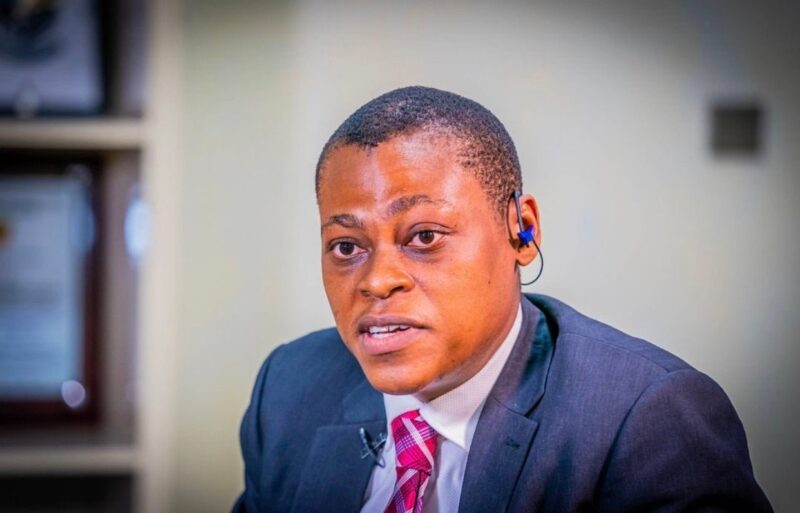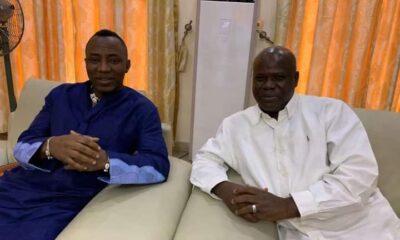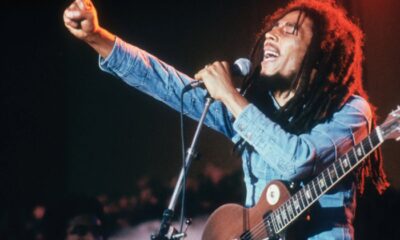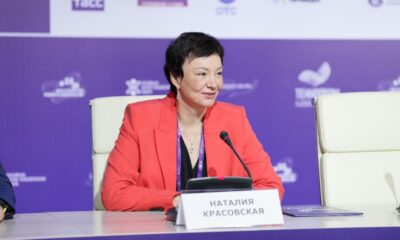National Issues
Who Is Afraid Of “Rufaism” As a Brand of Journalism? -By Isaac Asabor
Little wonder his experience has offered him the opportunity to be involved in other engagements that include being an analyst on African Issues for the British Broadcasting Corporation (BBC), an analyst on small business and economy for TV Continental, and a facilitator for the Nigerian Bar Association conference in 2021. He has also facilitated training for top management staff of Microsoft and Nielsen group.

To not a few Nigerian Journalists that are hands on in the field, and even to some of them that has transferred their skills and journalistic knowledge to the fields of public relations and advertising, the birth of the Nigerian press dates back to 3 December 1859, with the appearance of the magazine “Iwe Irohin fun Awon Ara Egba ati Yoruba which literally means, “Newspaper for the Egba and Yoruba”. This first publication in Yoruba language, was published by Reverend Henry Townsend, who later added an English language edition. In a letter to a European friend in 1860, the cleric averred that: “My objective is to get the people to read, that is, to beget the habit of seeking information by reading”.
Unfortunately, “Iwe Irohin”, which focused on religious activities, but also devoted a lot of space to subjects like the abolition of slave trade and slavery, education and civil rights, quickly fell foul of the colonial authorities in Lagos, and Townsend was consequently sent back to Britain. The magazine’s premises were finally set ablaze in 1867 during anti-white riots in Abeokuta.
Since the death of Iwe Irohin, which invariably birthed journalism in Nigeria, there is no doubt that the press has been transformed tremendously in structure, number of outlets, contents and out-reach, and in that light paved the way for newspapers, radio and television stations to become the most readily available media platforms for news and other types of written and spoken communications, and the most reliable vaults of historical records, the most readily accessible chronicles of contemporary national events and memories, and the most dominant form of mass communication for the educated elite in the country.
Just like the newspapers, broadcast outlets which are invariably radio and television stations continued to play crucial roles, particularly in Nigeria’s political process as they serve as powerful media platforms for candidates and political parties to reach and communicate with voters. The role they have continued to play since the sub-sector was deregulated during the former president Ibrahim Babangida’s regime cut across information dissemination, campaign advertising, debates and forums, interviewing of political candidates ahead of elections, conduct of opinion Polls, issue analysis and voter education.
Other areas where broadcast stations continue to play their roles include, and not limited to candidate exposure, fundraising, Election monitoring Processes, fact and Influencing voter behavior as both TV and Radio have the power to shape voter perceptions, attitudes, and behavior.
Unfortunately, despite efforts been made by not a few Journalists in the field, in the bid to ensure that their professional footprints are imprinted on Nigeria’s political landscape, most of their critics, more often than not, seems to unjustifiably criticize them of not doing enough, particularly as they sometime see their relationships with some political leaders to be cozy, and in that light guesstimate that such relationships “Are too close for comfort, particularly in a democratic dispensation.
The critics often reason, rightly or wrongly, that whenever a Journalist is seen with political leaders, and harping on the catchphrase, “We Are Partners in Progress”, there must have been a compromise against the people. According to Mr. Martins Oloja, the Managing Director/Editor-in-Chief of The Guardian, “Journalism isn’t public relations. Journalism exists to scrutinize and question deviations, monitor governance and hold state and non-state actors to account, doubt and probe questionable reputation and integrity.
He continued, “Public relations goal is to manage reputation and control damage done to reputation perhaps though good journalism. This is yet another opportunity to explain this conceptual confusion to most people who do not understand what journalism is all about. We need to know that state actors all over the world want journalists to do public relations job for them. Journalism seeks to cover what is odd, bizarre and unusual about peoples, places and events. That is also why some scholars have defined the most valuable product journalists sell, ‘the news’ as something, somebody somewhere is trying to hide, and the rest is advertising’. And facts, which are the main ingredients of news are regarded as sacred. So, journalists are to cover people, events and places. Journalism is people-centric. So, it is the remit of journalists to cover people, places and events but most people in authority, especially the power and business elites want us to cover up for them at all times”.
Against the foregoing backdrop, it is expedient to opine that just as Thomas Jefferson had said that “The government you elect is the government you deserve,” it can in a similar vein in this context be said that the quality of governance political leaders exhibit at any given political dispensation determines the kind of journalists and journalism style such government deserve.
Given the foregoing, it is not unexpected that Nigeria today is now blessed with Mr. Rufai Oseni, a host on Arise TV. Not only is he a Journalist that notably practice adversarial brand of journalism, which to this writer, befits the present political dispensation, he is also a global speaker, thought leader, investor and technology enthusiast who mentors business startups across the African continent.
Contrary to intense campaign of calumny that is undeservedly been launched against him on the trail of hosting political stalwarts, Oseni has worked for JFM Radio in Warri, Unique FM in Ilesa, Gold FM in Ilesa, Ogun State Television as a Sports Analyst, Ogun State Radio as a presenter, Osun State Government and Inspiration FM. With the foregoing work history, he is not in any way a gatecrasher into the field of Journalism as most of his critics erroneously think.
Little wonder his experience has offered him the opportunity to be involved in other engagements that include being an analyst on African Issues for the British Broadcasting Corporation (BBC), an analyst on small business and economy for TV Continental, and a facilitator for the Nigerian Bar Association conference in 2021. He has also facilitated training for top management staff of Microsoft and Nielsen group.
At this juncture, it is expedient to ask, “Who Is Afraid Of “Rufaism” As a Brand of Journalism?” To the view of this writer, the brand of journalism practice, which can in this context be called “Rufaism”, and which Rufai has adopted is no doubt befitting to the ongoing political dispensation that has in less than 6 months being characterized with political shenanigans.
For the sake of clarity, Adversarial journalism is simply a kind of journalism that obliges the journalist to adopt an oppositional and combative style of reporting and interviewing. The goal of adversarial journalism is to reveal supposed wrongdoings of leaders, mostly political leaders, primarily for public good and good governance.
Also defined from a similar vein, Oxford reference dictionary says it is “A model of reporting in which the journalist’s role involves adopting a stance of opposition and a combative style in order to expose perceived wrongdoings”. The notably explanatory dictionary went further to descriptively say “This style is sometimes criticized as being aggressively antagonistic or cynically divisive”. Given the foregoing definition and descriptive clarifications, it is expedient to ask again, “Who Is Afraid Of “Rufaism” As a Brand of Journalism?”










